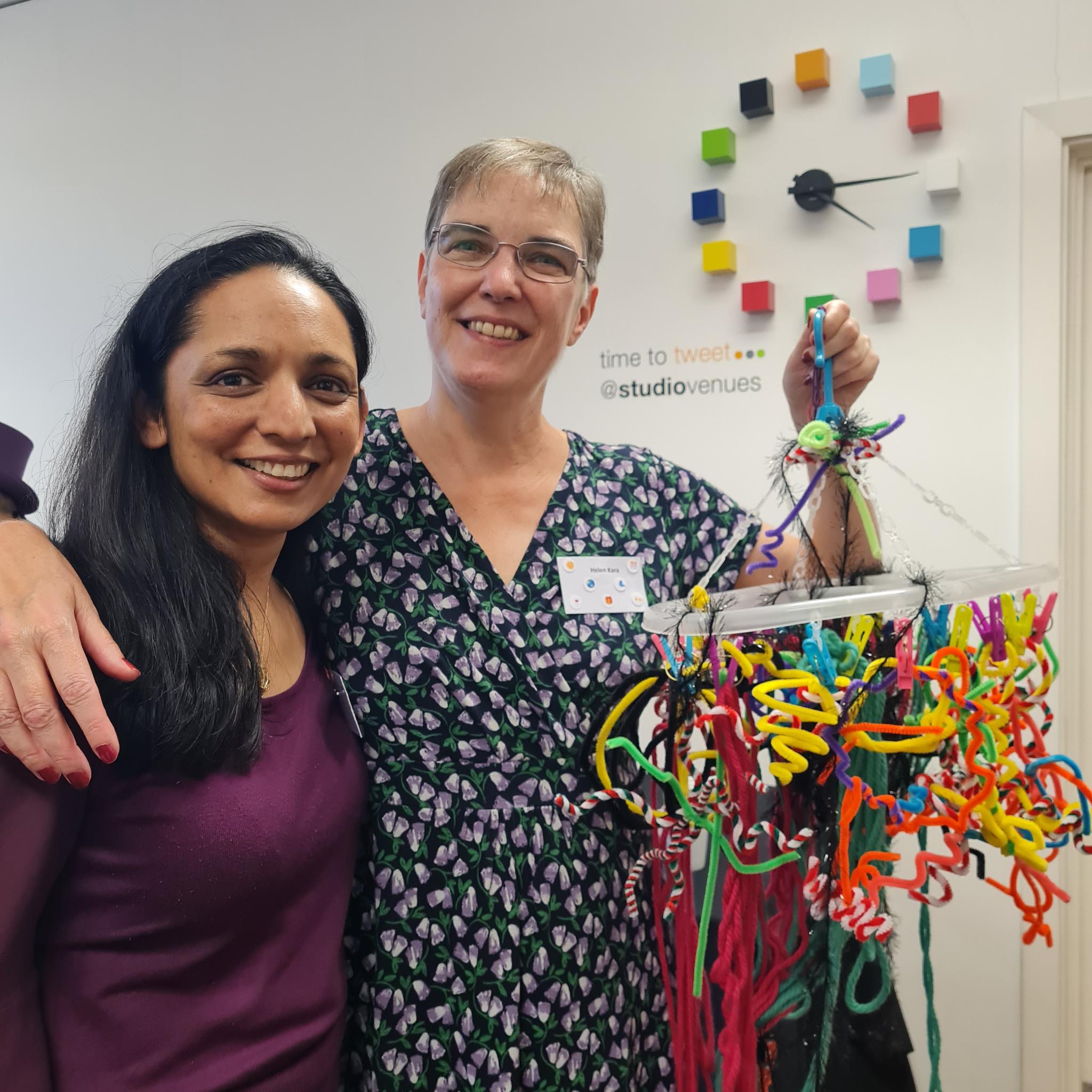The run-up to the conference
Most of the promotion was done via social media. I was anxious about ticket sales, though the fact that presenters had to buy tickets was a big help. This isn’t always the case with conferences: those that have external funding can offer some waivers or reductions for presenters. But we wanted to keep ticket prices as low as possible and we thought the fairest way to do this was to charge everyone. If we gave reductions to presenters, we would have had to increase costs for others to balance the books. There were some bursaries available for people in financial need, provided by the National Centre for Research Methods and an anonymous sponsor.
To my delight, the 180 in-person tickets sold out a couple of months before the event, and we also sold over 100 online tickets. So that was a huge relief.
The couple of weeks before the conference were incredibly busy. There was lots of correspondence, queries, liaising with the venue, liaising with sponsors, printing and making up badges, stuffing conference bags… I was advised to outsource those jobs but again that would have increased costs, so my support worker and I did it all on my kitchen table.
Luckily I knew enough about running events to know this would be a busy time, so I kept my calendar as free as possible so I had time to do what needed to be done. And the last couple of days were pretty much mayhem, with presenters having to withdraw for personal reasons and needing to be replaced, and all the paraphernalia to gather together and transport up to Manchester.
The conference itself

I’m delighted to say it was a huge success. The keynote speakers did exactly what I had hoped they would do. Pam Burnard focused on rebellious research and got the audience involved in wool throwing and other creative activities. Caroline Lenette talked eloquently about the importance of being disruptive. If you’re interested, both keynotes are on my YouTube channel. The venue was excellent, the participants enthusiastic, and the presentations many and varied. The main complaint from participants was that there were so many good options, it was hard to choose!
The conference really was international. People came from Canada, the US, New Zealand, India, Nepal, Denmark, Belgium, the Netherlands, Ireland, and all over the UK. And Australia – there were so many Australians they ended up having a separate networking meeting on day 2! I feel slightly incredulous that just because I said it would be an international conference, it actually was one. It was also delightfully diverse. There were participants of various genders, people of colour, disabled people, and all kinds of intersectional loveliness which made for really rich discussions.
We had excellent feedback. Examples include: ”It was a brilliant, wonderful conference, and the best online conference that I’ve ever attended.” ”Excellent few days in Manchester for #ICRMC where the vibe was most welcoming and the content engaging, important and imaginative. Everything you’d want a creative methods space to be. Thanks and congrats to all involved.” And some people have written blog posts about their experiences of the conference, including Dawn Wink from the US and Victoria Bartle from the UK.
The mistakes we made
We didn’t tell potential presenters upfront that they would need to pay for their ticket. Some people were really hacked off about this, and one or two withdrew as a result. But we’d had 120 proposals so we had a decent-sized reserve list and we were able to complete the programme.
Also, I miscalculated the ticket prices and at one point I wasn’t sure we would even cover the costs. Fortunately we did, with a small surplus of around £2,000, which is not enough to do much with but definitely better than a loss. This year I’m getting some help with the sums because I evidently need it!
We got mixed up about two of the rooms at the venue, so what the programme said was in one room was actually in the other and vice versa. A couple of helpers got around that with the genius idea of swapping the room names – they made signs on sheets of paper and stuck them over the actual room names on the doors. Problem solved!
Then from the feedback we learned that some people thought two hours was a bit too long for a workshop, so this year we’re having a maximum length of 90 minutes.
What we got right
 Most things, really, I think. So we’re doing it again! Same venue, 9-10 Sept. Keynote speakers this year are Su-ming Khoo from Malaysia via Ireland, a feminist researcher in international development and decolonisation, and Dawn Mannay from Wales who specialises in creative research methodologies. Two colleagues are helping me assess the proposals, and the programme will be online by the time tickets go on sale in early March. Maybe I’ll see you there!
Most things, really, I think. So we’re doing it again! Same venue, 9-10 Sept. Keynote speakers this year are Su-ming Khoo from Malaysia via Ireland, a feminist researcher in international development and decolonisation, and Dawn Mannay from Wales who specialises in creative research methodologies. Two colleagues are helping me assess the proposals, and the programme will be online by the time tickets go on sale in early March. Maybe I’ll see you there!
AUTHOR BIO:
Dr Helen Kara FAcSS has been an independent researcher since 1999 and an independent scholar since 2011. She writes about research methods and research ethics, and teaches doctoral students and staff at higher education institutions worldwide. Her books include Creative Research Methods: A Practical Guide and Research Ethics in the Real World: Euro-Western and Indigenous Perspectives for Policy Press, and Qualitative Research for Quantitative Researchers for SAGE. Helen is an affiliate at Swansea University and a visiting fellow at the Australian National University.